The pioneering conference returns for the first of two 2023 events, this time in its new home city of Calgary, AB.

Day one of the mesh conference in Calgary focused on digital transformation and innovation, looking at what’s coming next, and how we get there.
Unlike many tech events where the focus can get way into the digital weeds or frame everything around the tech of the day (ChatGPT, anyone?) the real prize at mesh was the potential impact of digital transformation on people.
For the mesh brand, the Calgary conference marks its return after a lengthy hiatus. The proudly PowerPoint-free conference originally launched in Toronto in 2005 and ran for 10 years.
It featured speakers, conversations, and debates at the nexus of four areas: business, marketing, media, and society. This was the first event in nearly a decade and brings a renewed focus on digital transformation in the private and public sectors, and society as a whole.
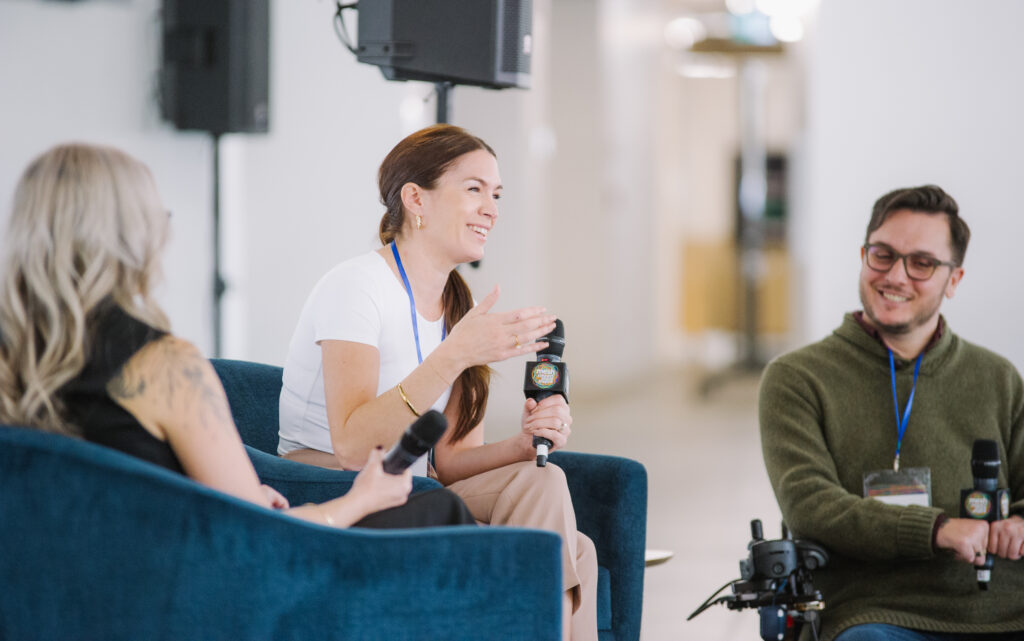
Day one in Calgary featured panels with tech leaders in both startups and enterprises, fireside chats with technology and innovation industry leaders, an innovation showcase, and spirited discussions amongst attendees and speakers.
Here are three key ideas that ran through day one of mesh Calgary:
1. Tackling big problems and pursuing big opportunities: ‘meshies’ show their ambition
Ambition was a key theme throughout day one. While there were nods to the virtues of incremental innovation, attendees were animated mostly by big problems, big challenges, and big opportunities.
In the kickoff panel on the state of innovation in Canada, Alison Sunstrum, the CEO of CNSRV-X Inc. (Conserve X), which researches and applies emerging technology in agriculture, laid out the need for bold action. She noted that global problems like food insecurity and climate change are problems that only innovation can solve and that failure to do so would be disastrous.
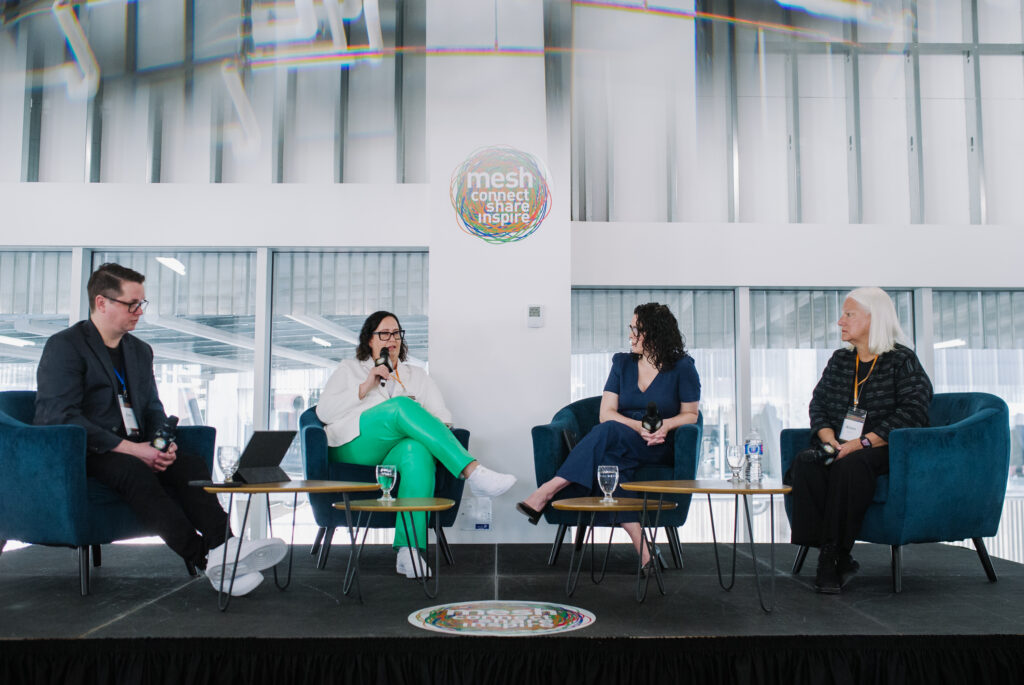
She also put a challenge to Canada to grow its innovative capacity:
“We have to become more tech-savvy and more tech-enabled to become a truly innovative country. Canada has had decades of innovation agendas, but we’re not getting ahead. We are at the bottom of our peer group [in the OECD]. We must become an innovation nation”
Others were just as focused on the possibilities as the problems.
In her fireside conversation, Kirstine Stewart, Twitter’s former VP Media for North America, looked back on the early years of the social network. Back then, the platform’s role in galvanizing the Arab Spring suggested the possibilities of democratizing communication and access to information. And with the Twitter brand now staggering under new leadership, Stewart looked ahead to what might supplant the big social networks.
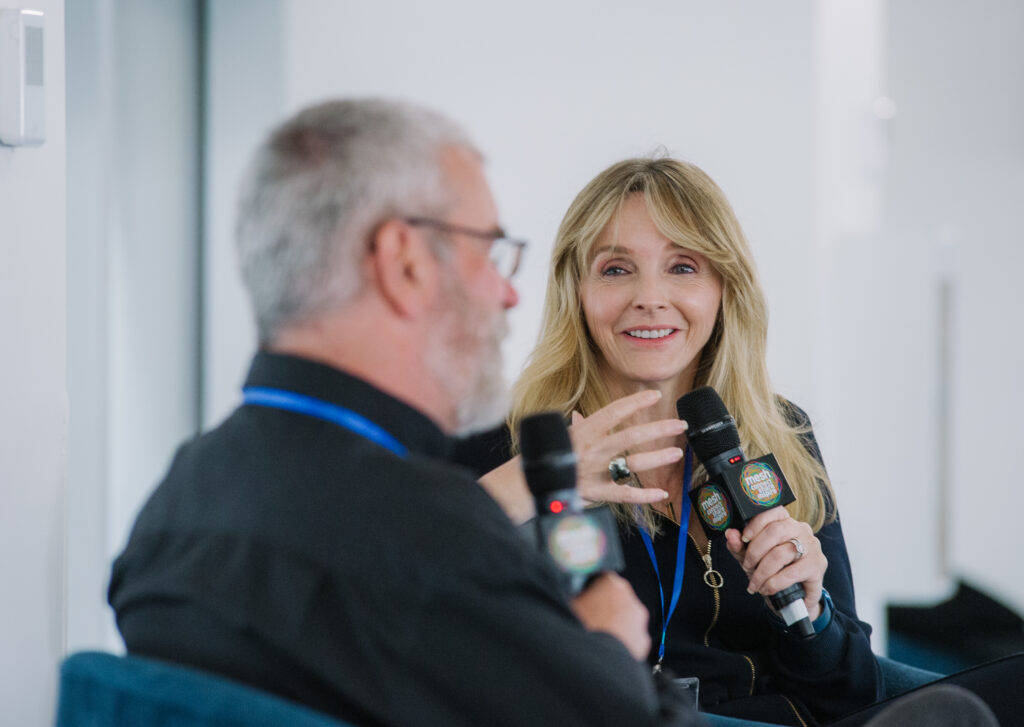
Eventually, possibly, maybe.
“It’s really hard to displace the current social media big four,” she said. “Twitter users came up with the idea of retweets and quote tweets. That creates a sense of ownership with users that isn’t possible with some of these other new platforms. But I do think there’s an opportunity for a whole new type of social platform.”
Steward also said there’s an inherent interest in data being shared and there’s a place for a new social platform to be conceived of in a way that hasn’t been done before.
“Post and Mastodon – they’re trying to recreate what people have on Twitter. It needs to be new.”
2. Breaking down the silos between sectors and organizations
In a panel titled ‘Catalysts for Change,’ which was ostensibly focused on digital transformation in the non-profit and public sectors, much of the talk was about the private sector.
“We have a fundamental societal problem where we say we make money over here and we do good over here and never the twain shall meet,” said Charles Buchanan, Founder and CEO of Technology Helps, which provides technology services to nonprofits and social good organizations.
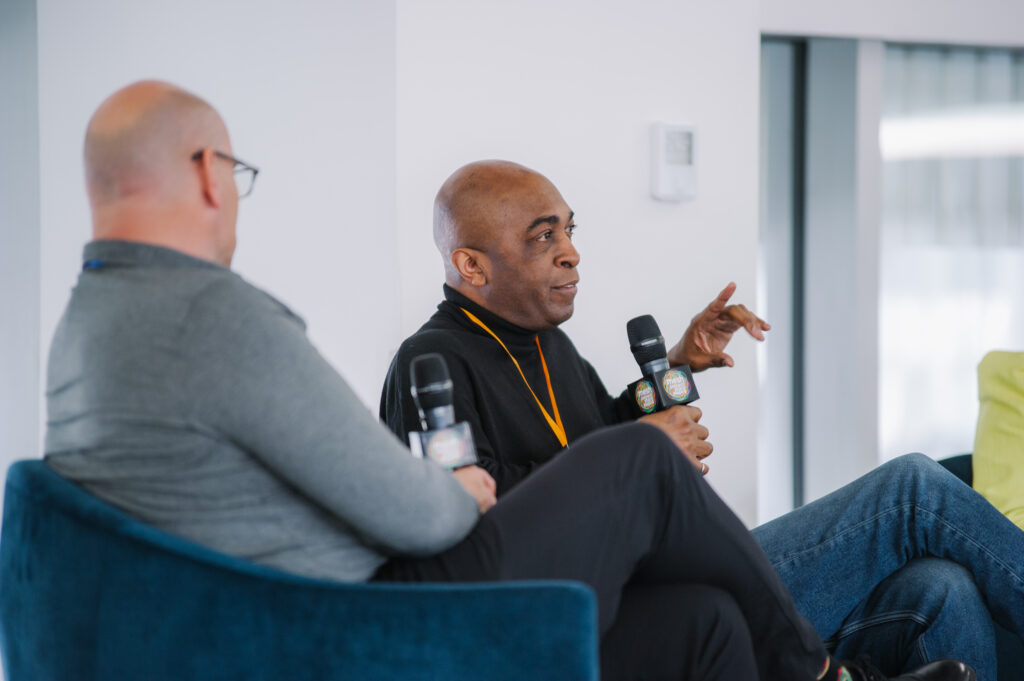
Buchanan did not hold back.
“We pretend that we give a fuck about the vulnerable — and yet making money should be done in one silo, while non-profits should be run by volunteers.”
Picking up on that framing of the challenges in the sector, panelist Alison Pidskalny of Pixelated Ventures suggested that nonprofits needed to “go beyond the grant” and take a page out of the private sector book to grow their revenue streams.

“There comes a point for most non-profits when they need to figure out other income streams, besides funding,” said Pidskalny. “That’s where digital transformation comes in. You can use digital technology to monetize what you already do well and create innovative new revenue streams.”
This theme of breaking down silos between sectors and organizations recurred throughout the day, with many echoing its potential catalytic role in transformation.
“We cannot afford siloed thinking,” said Leta LaRush, Director of Business Development and Innovation at BASF Canada, noting her company is looking for more opportunities to partner with startups from a variety of tech backgrounds.
In fact, speakers, panelists, and hallway conversations all seemed to come back around to the need for all societal stakeholders to partner more effectively, share information more efficiently, and innovate more quickly.
“The energy at mesh is different than any other conference,” said attendee Sarah Coleman of Computer Modelling Group (CMG). “Many people get caught up in silos, and the conversations and connections at mesh facilitated brilliant and relevant discussion across industries.”
Coleman works in the energy industry and her company recently held a roundtable discussion with leaders from diverse backgrounds. She said her big takeaway from that initiative was how important sharing ideas is to driving successful outcomes for all, and she came to mesh to connect, share and be inspired by other industry leaders.
“We all need to look beyond our inner circle to the periphery, and beyond. It’s there that the meshing of ideas can lead to the greatest impact.”
3. Unlocking transformative innovation starts with inclusivity – and there’s still much work to do
“To elevate our global economy, we need to enable all cultures and people to participate, and private companies need to be part of making this happen,” said panelist Amy Peck, Founder & CEO of AR/VR strategy & consulting firm EndeavorXR.
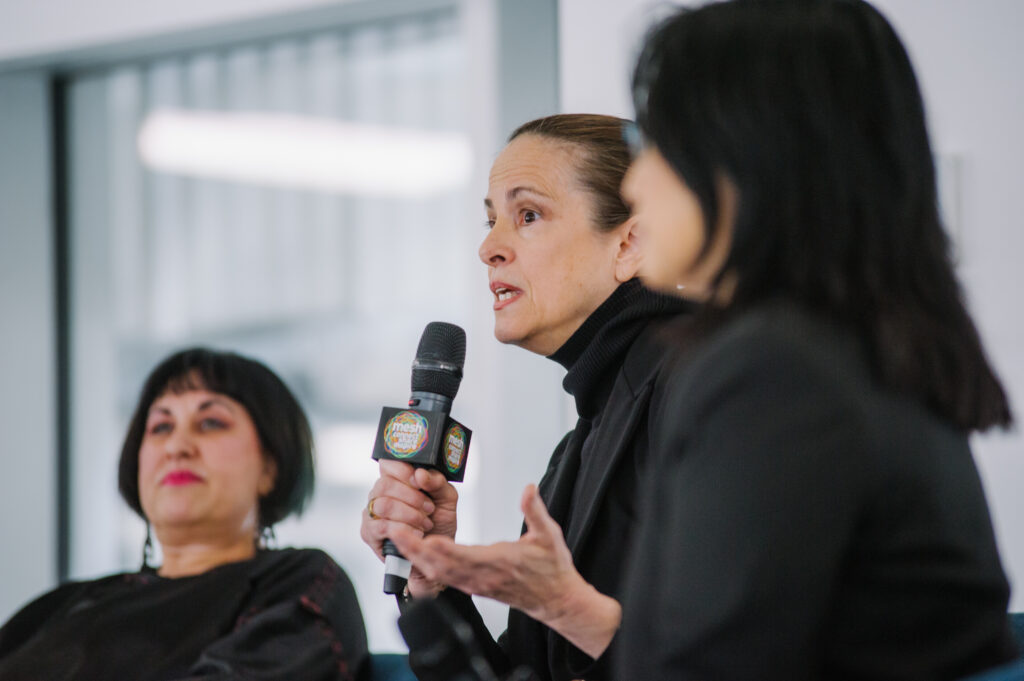
This statement, so agreeable and obvious on its face, takes on a sharper edge when you consider how many founders at mesh alone started their businesses because talented people are locked out or underrepresented in the innovation ecosystem by systemic barriers.
Three notable examples:
- April Hicke, Co-Founder and CGO at Toast, abandoned her career climbing the corporate ladder to start Toast, a collective designed to support women in technology. She’s now focused on ‘scaling deep’ and changing the hearts and minds of people so they consistently hire more diversely.
- Sean Crump, who became disabled at age 19, is on a mission to improve the social and economic inclusion of people living with disabilities with his company Included By Design. It specializes in consulting and certifying spaces as accessible locations.
- Mark Fairbanks runs Islands of Brilliance, an organization using art, creativity, and creative technologies to spark self-confidence, encourage independence, and build pathways to employment for autistic individuals.
Fairbanks was featured in a fireside conversation, the final session of mesh Calgary day one. When his son Harry was identified as autistic at age 3, his neurologist said Harry probably wouldn’t go to college. Harry went through the Islands of Brilliance program, graduated with an honours graphic design degree, and now works in his field.
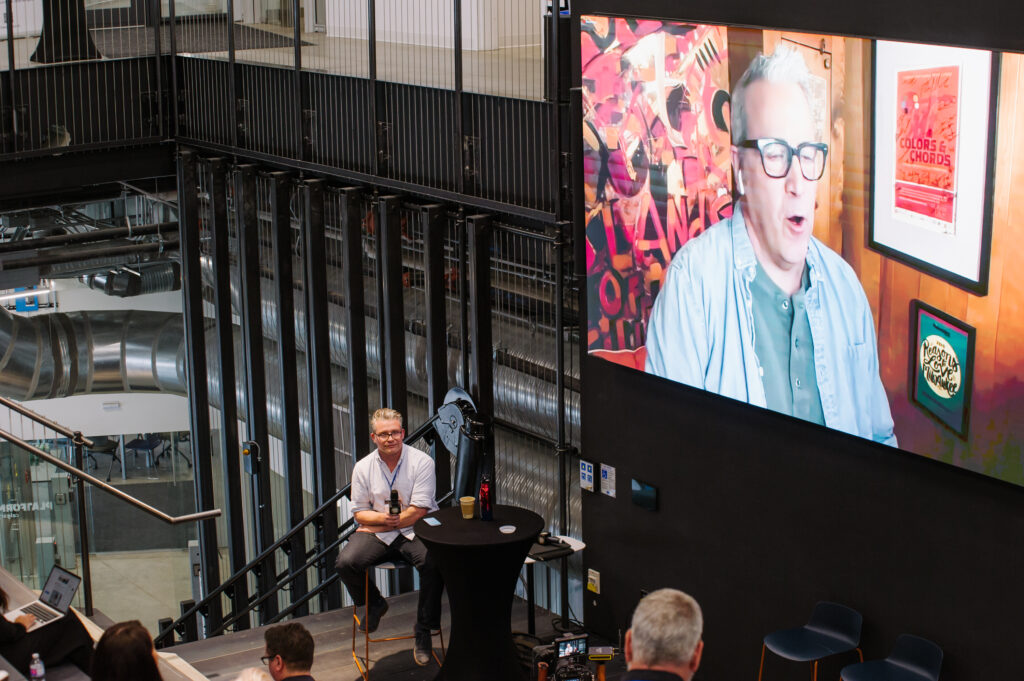
And while it’s obviously not solely on Harry to address climate change, food insecurity, bad actors in the social media space, hiring biases, data silos, non-profit funding, or any of our other big challenges, because of his father’s work, he’s one more person working somewhere inside our overall societal innovation ecosystem.
In case you missed the event, the next mesh takes place in Toronto in November (dates to be announced), and it’s back in its new permanent home in Calgary in June, 2024.

